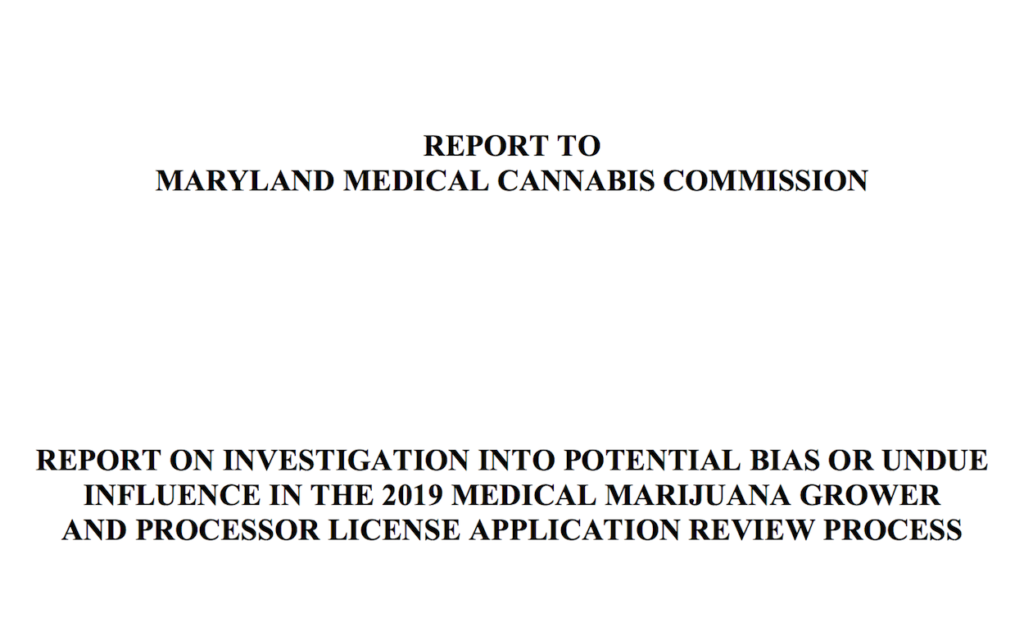Last week was full of good news from the Maryland Medical Cannabis Commission (MMCC). At Thursday September 3’s MMCC meeting Executive Director William Tillburg excitedly detailed the ways in which medicinal cannabis continues to be a booming business in the state. Tilburg noted that retail sales in July alone were more than $40 million which puts the 2020 total for the year so far at more than $240 million. That’s double the retail sales for 2019. There are currently 111,000 registered and certified patients and the MMCC is receiving around 200 medicinal cannabis card applications per day, Tilburg also explained.
The next day, a report from the MMCC detailing the findings of an independent investigation into 2019’s license application review by MMCC’s staff and Morgan State University was released to the public. That report, the result of an investigation by former Baltimore City State’s Attorney and former Assistant U.S. Attorney Gregg Bernstein and law firm Zuckerman Spaeder LLP, said that there is “no evidence of bias or undue influence in the 2019 license application review process.”
In 2019, the MMCC received over 200 applications for four grower licenses and 10 processor licenses with over 90 percent of those categorized as Disadvantaged Equity Applicants (essentially, a business whose ownership was at least 51% held by a “qualifying minority group”) all in response to all of initial licenses being given to white growers and processors. Additionally, there was the federal indictment and subsequent guilty plea of now former delegate Cheryl Glenn tied to taking bribes from potential cannabis licensees and longstanding rumors that previous MMCC executive director Joy Strand was conflicted because of a family member connected to a company applying for a license.
Back in February, at the first full of MMCC meeting of 2020—and due to Covid-19, the only one so far this year that was not virtual—the investigation was announced: “Many of you here are aware that the commission in September delayed the award of approvals for four additional grower licenses and 10 additional processor licenses,” Tilburg said back in February. “That was due to concerns that had been relayed to the commission about potential undue influence or partiality in the evaluation process.”
According to the report, there were very few problems or conflicts of interest and the reports ran through each of these only to, for the most part, dismiss them. Former MMCC executive director Strand did not have a relative connected to one of the cannabis companies applying for a license. No one working at Morgan State University “had improper communications” with applicants. Three people at Morgan State however did have affiliations with applicants but those affiliations did not influence the process. There was no evidence that former Delegate Glenn “improperly influenced” the application reviewing process (even though she took bribes from applicants for the express purpose of influencing the process). And a number of other allegations regarding favoritism and “inside information” being provided to applicants were also unfounded according to the report.
The report will be discussed at the MMCC’s next meeting, scheduled for October 1.

